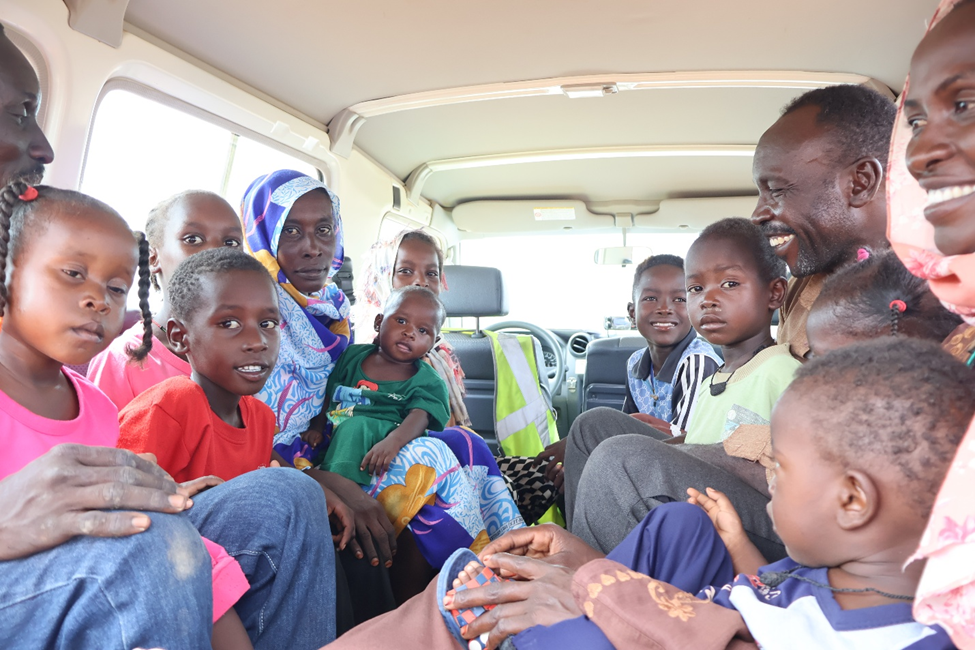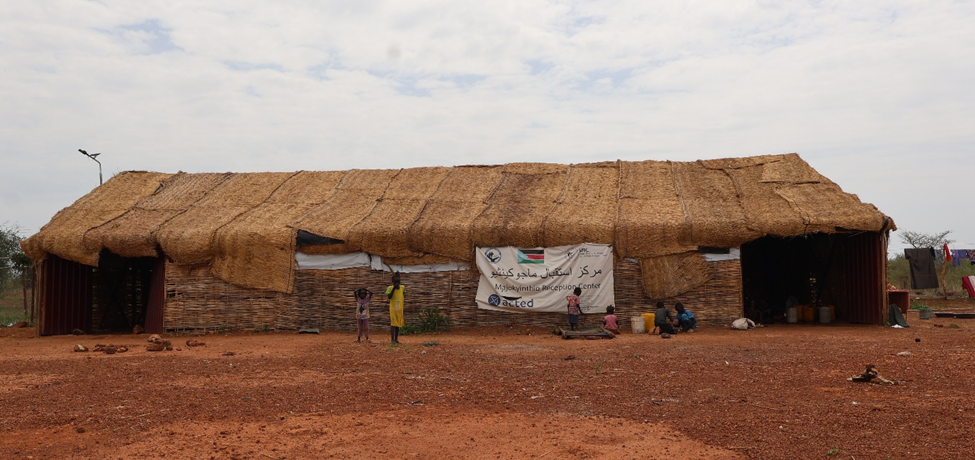Meet Kadija: A refugee’s journey to hope and safety in South Sudan
Meet Kadija Hussein, a 30-year-old mother of three boys and two girls. She once lived a happy life in Central Darfur, Sudan. Her husband, Abdulla Smail, 40, worked as a truck driver. Kadija helped support their family by working on a vegetable farm. Their dream was for their children to get a good education, especially their first daughter, whom they hoped would become a doctor someday. But everything changed when the conflict that started in Khartoum in 2023 spread to other parts of the country, including Darfur.
The conflict made life very difficult for children to play, learn or even pray together. Kadija and her family wanted to stay in Sudan, while many others fled to South Sudan in search of safety, protection, and better opportunities. However, as violence grew worse, they decided to leave their homes. On June 3, 2025, they began a difficult and uncertain journey to South Sudan. Kadija describes it as a “desperate journey” with no clear destination. “We travelled for three days, facing many challenges, including hunger, lack of clean water and shelter, on our way. The vehicle broke down several times, which slowed us down. We only carried our clothes, with nothing to eat.”
Despite the difficult journey, Kadija remembers how kind the people they met at the border of South Sudan were. "When we arrived at the transit centre, World Vision, UNHCR and other organisations welcomed us with warm smiles. They gave us hope and morale to stay strong. I felt a deep sense of relief and safety for my children and myself. They gave my children medicines, biscuits and hope," she says.
"My children smiled as they received biscuits. For the first time since we left home, they felt happy and safe,” she recalls. Kadija’s family, including 12 other families, have now been relocated from Majoknyinthiou border entry point in Aweil East to Wedweil Refugee Settlement. She is now hopeful that her dreams for her daughter’s future are still alive. She heard there are schools at the settelement camp that cater to both refugee children and children from the host community. She believes her daughter can still become a doctor someday.

"Despite all the challenges we have faced, I believe my daughter can still become a doctor someday. I am holding onto hope that her future is still bright if this support continues." She says.
In partnership with UNHCR and the South Sudan Commission for Refugee Affairs (CRA) and funded by the European Union, World Vision implements multi-sectoral project at the Wedweil Refugee Settlement, which provides protection, education, and primary health care services, including provision of non-food items (NFIs) for refugees. When new families arrive at the border, the the World Vision team identifies unaccompanied children, people who are wounded, or those who need special help and relocates them.
Through the project, World Vision also finds foster families for unaccompanied and separated children who have been related to the settlement and provides scholastic materials, including school uniforms and exercise books, and pays examination fees so children can stay in school. Last year, the project also paid examination fees for over 400 children to go to school and stay safe. This year, the project also supported over 1,000 learners in the three integrated schools, including Salvation Primary School, Wedweil Primary School, and Wedweil Modern Secondary School.
But, there are still some gaps. Because of the funding reset, some services have had to stop. For example, the hot meals that previously provided to new arrivals at the border have been discontinued, making it harder for families arriving in need of immediate food. The medical services at the border are basic, so people with serious health problems often cannot get the treatment they need. Also, the shelter at the border is small and cannot hold all the families arriving, which causes crowding and delays.
Kadija’s story shows how agencies like UNHCR and World Vision are working hard to give refugees hope and a better future. Despite the hardships, families like Kadija’s keep believing that a new beginning is possible.

Story & Photos by Moses Sakondo | Communication Officer